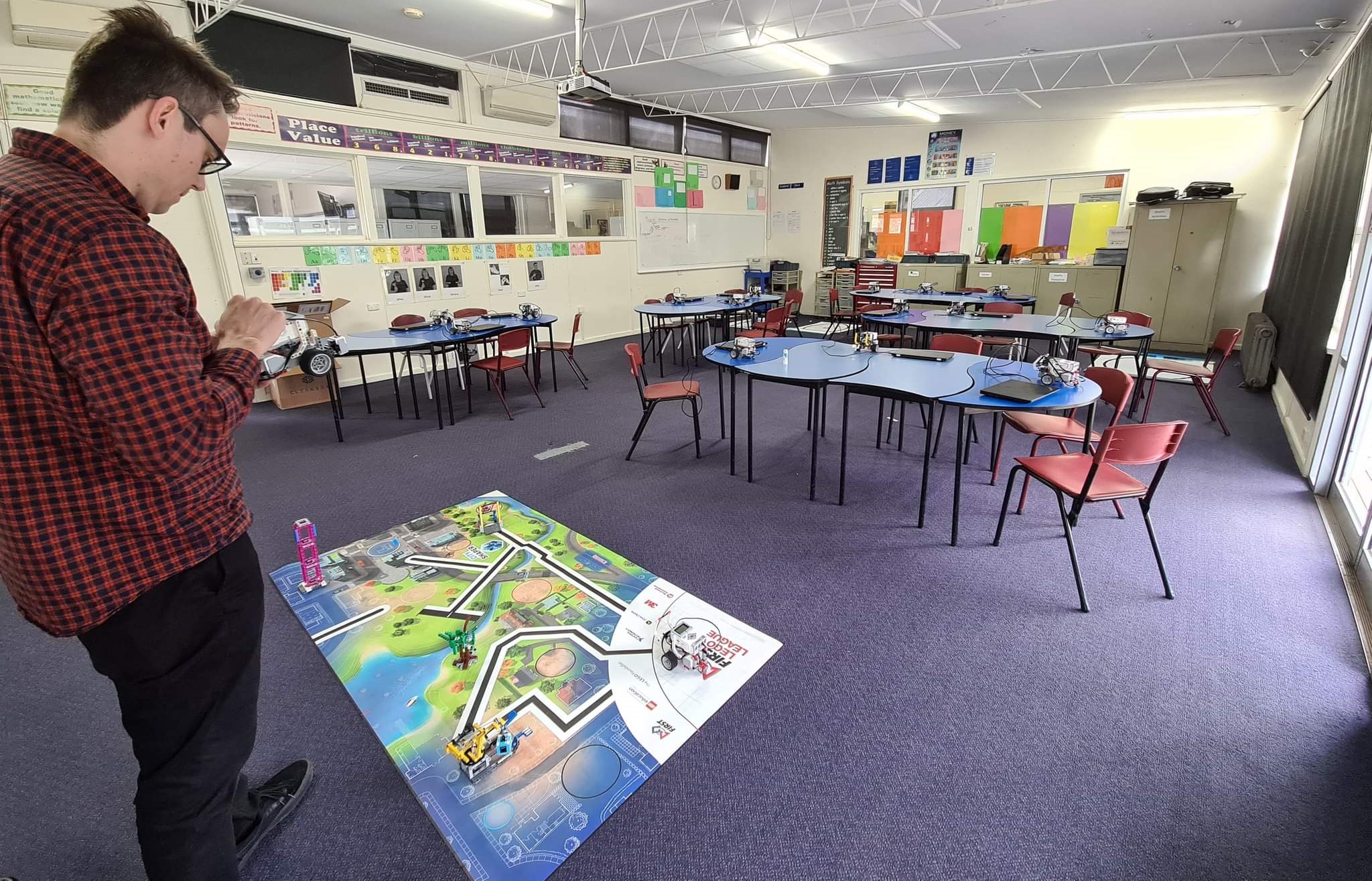STEM program inspires rural students

Students from rural schools such as Nathalia Secondary College are able to use innovative technology through KIOSC’s interactive STEM activities
In summary
- Swinburne’s Knox Innovation, Opportunity and Sustainability Centre (KIOSC) has received government funding for their Inspire Program
- The KIOSC Inspire Program provides STEM educational experiences to rural students as well as career support services
- The program includes technology-based experiences for real world settings in farming, communities and design
Swinburne’s Knox Innovation, Opportunity and Sustainability Centre (KIOSC) has launched its Inspire Program as part of the Victorian Government’s investment to help raise rural students’ understanding and confidence in pursuing STEM related tertiary education.
The KIOSC Inspire Program gives rural students the opportunity to experience new and emerging technologies in their own environment through interactive STEM activities. It helps broaden career pathways available and enables them to make an informed decision on their future careers through career clubs and discovery sessions.
To help ignite interest in STEM among her students, Principal of Nathalia Secondary College, Helen Ginnivan, invited KIOSC to deliver the Drone and Robotics Program. Students were taught how to control drones and prototype programming codes, which she says created dialogue full of inquiry and problem solving.
‘The students really enjoyed the practical component flying the drones and managing the challenges they were set in a team.’
The experiences are designed to focus on concepts and issues relevant students in rural areas. Through technology, students explore innovative solutions to problems that will open their minds to exciting career possibilities.
The KIOSC Inspire Program is made up of three main educational experiences that can be selected:
- Smart Farms: exploring the use and benefits of technology in farming.
- Smart Communities: discovering how technology can connect people and communities.
- Smart Design and Manufacturing: Bringing entrepreneurial and enterprising ideas to life through 3D design and production.

In their own school environment, rural students can experience new and emerging technologies, encouraging and supporting them to broaden their career pathways
Technology inspires
KIOSC Systems Coordinator, Brendan Kroon, is the equipment lead of the program and helps educators by managing and maintaining the relevant software. Mr Kroon enjoys travelling to rural schools and engaging with the students through delivering the program.
‘Technology is the core of the program. As we showcase the latest tech to the students and demonstrate how they can use it in their local communities, we teach them new vital skills (such as programming) that may be beneficial to them in the future.’
Mr Kroon says that though COVID-19 has limited KIOSC’s ability to travel to rural schools, they continue to engage students online and are excited to deliver the program in person as soon as they can.
‘The benefit of this is that the students get a hands-on experience that the schools are unable to provide. The teachers are also upskilled on how they can take this program further for the benefit of their students.’
-
Media Enquiries
Related articles
-

- University
Swinburne launches Australian-first Undergraduate Certificate of Higher Education Studies
Swinburne has launched an Undergraduate Certificate of Higher Education, in an Australian-first that offers a new formal qualification to those who complete tertiary education but fall short of a degree.
Wednesday 10 December 2025 -

- Student News
- Science
- Sustainability
Introducing tomorrow’s global science communicators
Start Talking is Swinburne’s unique video-based public speaking competition, exclusively for undergraduate students
Monday 08 December 2025 -

- Technology
Swinburne-led network to guide AI use in youth services
Swinburne’s Dr Joel McGregor, Dr Linus Tan and Dr Caleb Lloyd have established the Responsible AI in Youth Sectors Network. The collaborative network aims to guide the fast-growing use of artificial intelligence in youth services across Victoria.
Friday 12 December 2025 -

- Astronomy
- Technology
- Health
- Science
- University
- Sustainability
- Engineering
Swinburne highly cited researchers reach the top in 12 fields
Ten Swinburne academics have been named on the Highly Cited Researchers 2025 list, released by Clarivate
Tuesday 02 December 2025 -

- Science
- Engineering
Swinburne secures grant to advance next-generation metamaterials research
Swinburne physicist Dr Weibai Li has received a Discovery Early Career Researcher Award from the Australian Research Council
Tuesday 02 December 2025

